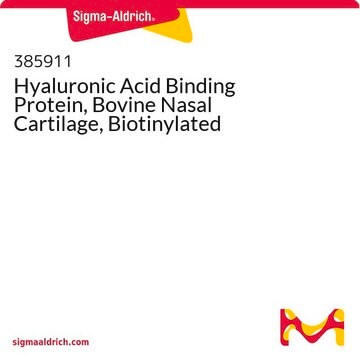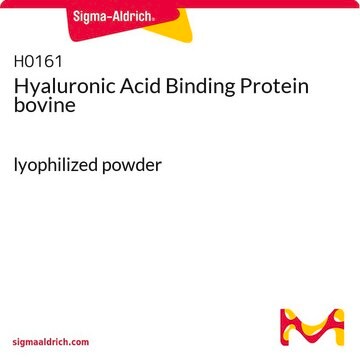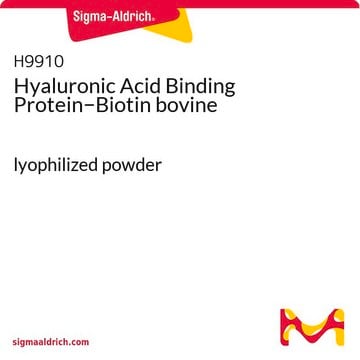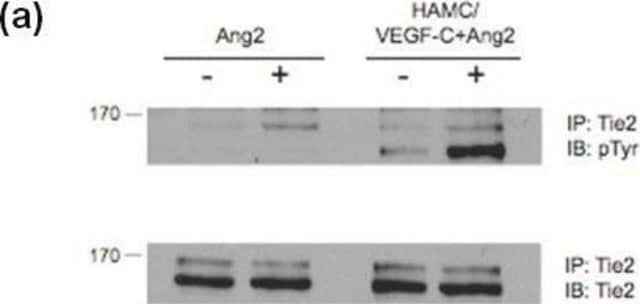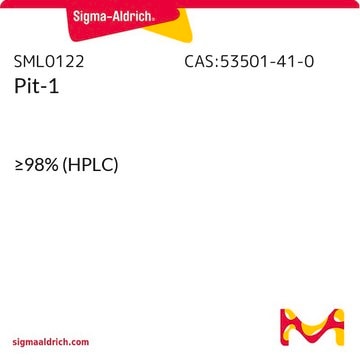385910
Hyaluronic Acid Binding Protein, Bovine Nasal Cartilage
Synonym(s):
Hyaluronic Acid Protein
Sign Into View Organizational & Contract Pricing
All Photos(1)
About This Item
UNSPSC Code:
12352202
NACRES:
NA.21
Recommended Products
form
lyophilized
Quality Level
manufacturer/tradename
Calbiochem®
storage condition
OK to freeze
shipped in
wet ice
storage temp.
−20°C
Related Categories
General description
Affinity purified. Binds specifically and strongly to hyaluronic acid (≥ 2000 M.W.). Composed of two binding polypeptides, which are derived from N-terminal regions of hyaluronic acid binding proteoglycan and linkage proteins.
Affinity purified. Binds specifically and strongly to hyaluronic acid (≥2000 M.W.). Composed of two binding polypeptides, which are derived from N-terminal regions of hyaluronic acid binding proteoglycan and linkage proteins.
Warning
Toxicity: Standard Handling (A)
Physical form
Lyophilized from 0.1 M Sodium Bicarbonate, pH 8.3.
Reconstitution
Reconstitute in 100 µl of PBS.
Other Notes
Kohda, D., et al. 1996. Cell 86, 767.
Heinegard, D., and Hascall, V.C. 1974. J. Biol. Chem. 249, 4250.
Heinegard, D., and Hascall, V.C. 1974. J. Biol. Chem. 249, 4250.
Legal Information
CALBIOCHEM is a registered trademark of Merck KGaA, Darmstadt, Germany
Storage Class Code
11 - Combustible Solids
WGK
WGK 1
Flash Point(F)
Not applicable
Flash Point(C)
Not applicable
Certificates of Analysis (COA)
Search for Certificates of Analysis (COA) by entering the products Lot/Batch Number. Lot and Batch Numbers can be found on a product’s label following the words ‘Lot’ or ‘Batch’.
Already Own This Product?
Find documentation for the products that you have recently purchased in the Document Library.
Hyaluronan Degradation by Cemip Regulates Host Defense against Staphylococcus aureus Skin Infection.
Tatsuya Dokoshi et al.
Cell reports, 30(1), 61-68 (2020-01-09)
Staphylococcus aureus is a major human bacterial pathogen responsible for deep tissue skin infections. Recent observations have suggested that rapid, localized digestion of hyaluronic acid in the extracellular matrix (ECM) of the dermis may influence bacterial invasion and tissue inflammation.
Our team of scientists has experience in all areas of research including Life Science, Material Science, Chemical Synthesis, Chromatography, Analytical and many others.
Contact Technical Service